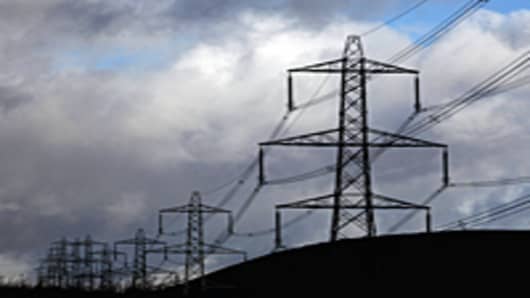The average UK household will be in “fuel poverty” by the next election in 2015 if energy bills, which have almost doubled as a share of median income since 2004, stay on their current path.
A steady rise in electricity and gas charges could force the government to reconsider its energy policy, said analysts, particularly an official target to spend £200 billion ($312.4 billion) on new infrastructure by 2020, including a big expansion of wind power.
Next month, the average annual bill for a dual fuel customer will reach £1,293 ($2,020) or 6 percent of median household income, compared with 3.3 percent in 2004. Any household that spends 10 percent of median income on electricity and gas lives in “fuel poverty”, according to the government’s definition.
David Cameron, prime minister, and Ed Miliband, the Labour party leader, have both voiced concern about the absolute level of energy bills. But the relative growth of this burden has gone largely unremarked.
Energy costs have risen more than six times faster than household incomes since 2004. The average dual fuel energy bill has climbed 117 percent in the past seven years, while median household income has increased 18 percent. On present trends, energy costs will absorb 7.4 percent of median household income by 2013, 8.2 percent in 2014 — and 10 percent in 2015.
“If the rate of increase continues, it would concentrate minds even further and energy costs would rise potentially to the top of the public’s agenda and therefore of the political agenda,” said David Hunter, energy analyst at M&C Energy Group, a consultancy.
The government believes that creating a greener electricity system requires £200 billion ($312 billion) of investment. Chris Huhne, the energy secretary, plans to reform the electricity market to make it viable for utility companies to raise this sum. The capital investment, plus a return, would translate into higher bills.
Mr. Hunter described the cost as “eye-watering” and said investors would weigh the possibility of the government reneging on its proposed incentives. “That would clearly be a risk that you would have to price in to an investment,” he said.
Ann Robinson, director of consumer policy at Uswitch, an online comparison site, predicted an official reassessment. “I believe there is going to be a U-turn because I believe the government is listening and they’re going to have to face reality,” she said.
The Department of Energy and Climate Change said: “We know that rising energy prices, driven by international fossil fuel prices, are hitting many households hard at a difficult time. We are taking action to help consumers help themselves by shopping around, switching, as well as helping them make their homes more energy efficient.”
Wholesale gas prices, set by the international market and beyond the power of any British politician, have been the governing factor behind higher bills since 2004.
The profits of the “big six” utilities are less significant than might be thought. Deutsche Bank forecasts that UK households will spend £48 billion on energy in 2015: of this, only £1.3 billion ($2.03 billion) will be the post-tax profits of retailers.
“A political expectation is being created in people’s minds that if we can bash the retailers, that will lower bills. But the numbers just don’t support that,” said Martin Brough, director of industrials research at Deutsche Bank.
If the government wants to bear down on bills, it would have little choice but to reassess its own policies. At present, “policy costs” add 10 percent to household energy charges, principally via the “renewables obligation”, which compels suppliers to buy a proportion of their electricity from renewable sources, and the European Union’s carbon trading scheme.
“One of the big discretionary spends you’ve got out there is energy, particularly if health is sacrosanct,” said Mark Freshney, utilities analyst at Credit Suisse. “If you’re the government, you can’t allow everything to be sacrosanct.


